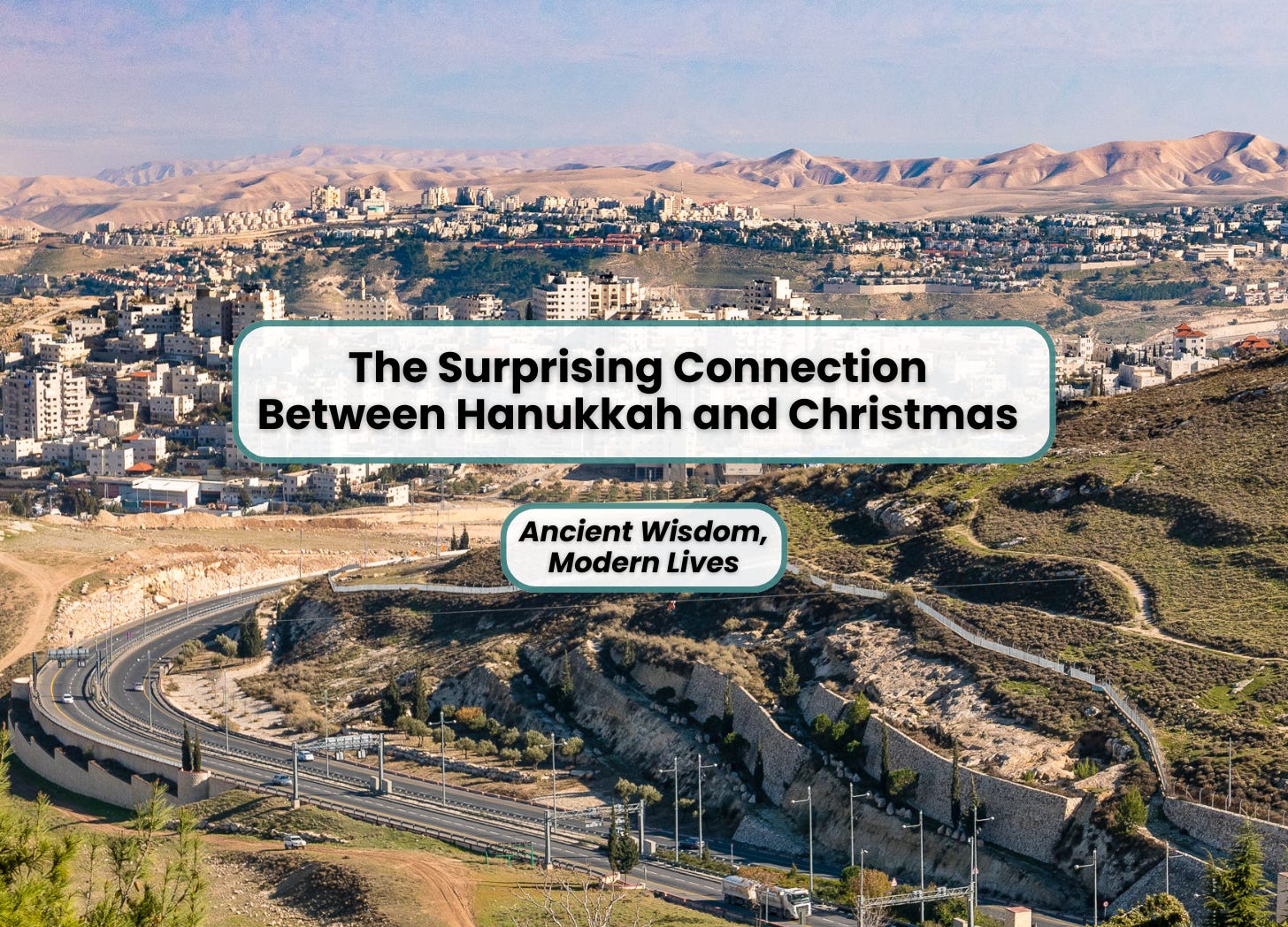What is the Dust of the Ground from which Man is Formed?
Genesis 2:7, according to the KJV, has the creation of man “from the dust of the ground.” But why “dust”?
The Hebrew here is afar, and it doesn’t seem to mean “dust.”
From Genesis 2:7, we know that it’s something on the ground, but we don’t know what. “Dust” is a possibility, just from this verse, but — again, just from this verse — so is “grass,” “rocks,” “lichen,” “mud,” etc. So we look further.
Genesis 13:16 helps us a little. There we read that Abram’s descendants will be like the afar on the earth, so that if the afar can be counted, so can Abram’s descendants. So afar can’t mean “mud” or “clay.” It seems to refer to particles of some sort.
Genesis 18:27 is helpful in a different way. There we see afar used as a metaphor of humility. (The full phrase is “afar and efer.” I’ve explained elsewhere that the English “dust and ashes” doesn’t do justice to the repetition of sounds in afar and efer: “Doublets Are Part And Parcel of Bible Translation.”) I Samuel 2:8 emphasizes the connotation of lowliness: God “raises the poor from afar, lifts up the needy from the trash.” And the vivid imagery of Isaiah repeatedly uses afar to represent humility.
But next we look at Genesis 26:15, which explains that the Philistines had filled Abram’s wells with afar. And here we see the problem with “dust” for afar, because one would use “dirt,” not “dust,” to plug up a well. (And, indeed, the KJV goes with “earth” here for afar.)
I no longer actively write this blog, but you can find me at Ancient Wisdom, Modern Lives
Subscribe Now I'd love to see you there!The basic problem is this: “Dust” in English refers specifically to particularly fine-grained particles, of earth or otherwise. “Dirt,” by contrast, is just what’s on the ground, and we seem to be talking about dirt here.
In Numbers 5:17, the priest is instructed to take afar form the floor of the Tabernacle, so again afar seems to be “dirt,” not “dust” Dust would have been swept away as part of regular cleaning (I presume).
In Greek for afar we usually find gi, a word that pretty clearly means “land,” both in the sense of “dirt” and of “country.” So in addition to its use as the substance that filled the wells, we read that Jacob lived in the gi of his ancestors, the gi of Canaan (Genesis 37:1). The Greek gi also means “(the entire) Earth,” a usage we find, for instance, in Genesis 6:11.
So far we have yet to see any indication that afar is particularly fine-grained, so we see no support for “dust.” We do see “fine as afar” in Deuteronomy 9:21, but there the fineness is in reference to the golden calf. “As fine as dirt” works as well as “as fine as dust.” (Though if the calf was made of gold, I’m not clear how it was burned into dust or ash or whatnot. Why didn’t it melt? But I guess that’s for another time.)
And in II Samuel 16:13, we see that afar can be flung along with rocks, again arguing for “dirt” and not “dust.”
Similarly, afar is a common image in Job, and there the word is frequently translated “earth.”
But “dirt” or “earth” isn’t quite right, either, because afar isn’t limited to what’s on the ground. In Leviticus 14:41, concerning a contaminated house, scraping a house produces afar — perhaps “debris,” in English. It’s probably not “dust” because the afar can be collected and poured out outside the city. (You won’t find “dust” in most English translations here, so if you’re not reading the Hebrew, it’s hard to know that it’s the same word.)
But then in the very next verse, “other stones” and “other afar” are supposed to be used to rebuild the house. (I don’t know of any English translation that uses “dust” here.) Is this just poetic symmetry? (Leviticus 14:40 refers to stones, so both “stones” and afar in 14:42 might refer to that which was discarded.) Or does afar also metonymically refer to “plaster,” made from earth and water? This latter possibility is consistent with Leviticus 14:45, where houses seem to be made of “wood, stones, and afar.” Or, perhaps, is the idea here that new stones, wood, and dirt are supposed to gathered, and then worked in the way that stones, wood and dirt usually are?
Also moving away from “dirt” for afar is Numbers 19:17, where we see that afar is the result of burning a sacrificial animal. Most translations have “ashes” here, not “dust.”
So afar seems to refer generally to any granular material, and in particular to the granular material on the surface of the earth. Additionally, it symbolizes humility. In English, we usually call that “dirt.”
So I think Genesis 2:7 should read, “The Lord God formed man from the dirt of the ground.”
afar Bible Bible translation dust of the earth dust of the ground Genesis 2:7 gi translation






11 Responses
I just wrote an article where I used the word “soil”. This also conveys the idea of “soiled” sometimes, but dirt and dirty do similarly.
There is certainly a play on words with the earthling returning to the earth on death.
Doesn’t the word/name “ADM” also mean “clay”?
Your post stimulated a thought here – how translation communicates also with the future.
grit
A question — Could the word “afar” have changed over the time period described? Might it be that a word that was very specific during the time that the first five books were written (around Josiah?) be different by the time of Job? (Post-exile)
Not trying to start an argument – just sharing my thoughts…
“So I think Genesis 2:7 should read…”
I’m not a Bible Scholar, nor do I know Greek/Hebrew… but I do know that God’s Word is God’s Word, and not a Book made by man. Therefore it doesn’t matter what you, or I, or Moses himself thinks – it only matters what God’s Word says. And I believe Isaiah 55:8-9
I think you’re missing that Hoffman is actually using God’s Word, and trying to convey it into English as accurately as possible. God’s Word isn’t being maligned; the English translation of it is being corrected. I don’t see this as man’s ways trying to be higher than God’s; if we are going by that logic than the very Bible you use is an expression of man’s arrogance, as it was translated out of the original language and into English. How is what Hoffman doing any different than what was done before him to create the Bible you and I read?
My Russian Jewish ex-husband translated “afar” as topsoil..the fertile layer….but that would work too for ashes, since they were and are used as fertilizers…You are SUCH a rigorous translator…do you ever think ancient people used their words loosely, meaning suggestively or towards a “meaning” in a much more off hand casual way, like we speak now?
[…] Davila @ PaleoJudaica.comMinimalism and Khirbet QeiyafaJoel Hoffman @ God Didn’t Say ThatWhat is the Dust of the Ground from which Man is Formed?Mark Goodacre @ NT BlogSharon Mattila’s Statistics and the Synoptic Problem: Some […]
[…] Waar zijn we eigenlijk van gemaakt? (n.a.v. Genesis 2:7) (let ook op comment #7) […]
Sounds like carbon to me. Some kind of building block or solid matter.